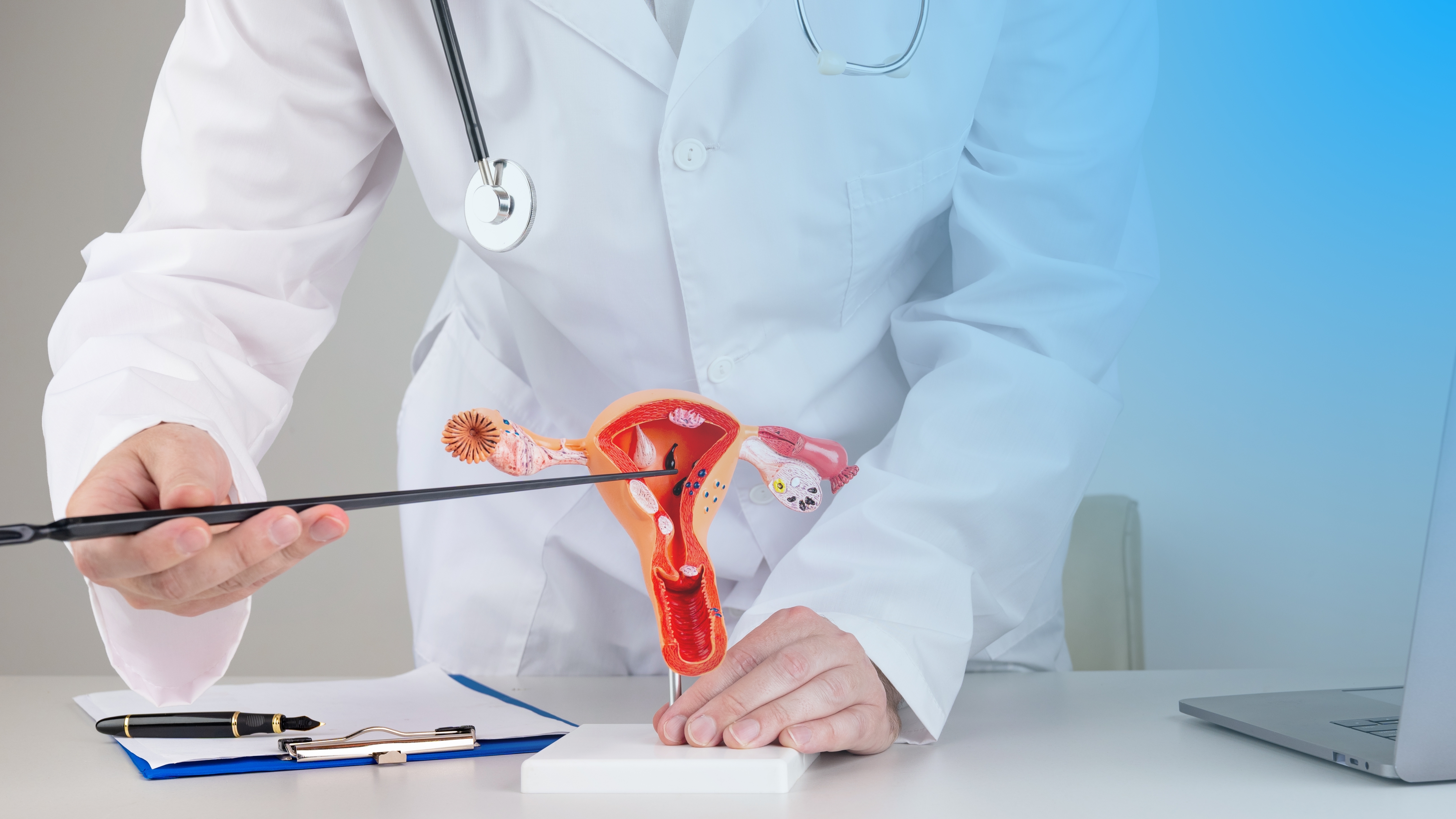Constipation - Treatments, Causes, Symptoms, Home Remedies & More
Written By: Dr. Yasmin Fadhil Kadhem
Updated On:December 20, 2023

What is Constipation?
Constipation is when a person has difficulty emptying the large bowel.
It can happen for many reasons, such as when feces pass through the colon too slowly. If food moves slowly through the digestive tract, it absorbs more water, making the stool harder – & more difficult to pass.
If you go less than three times a week, you might have constipation.
What causes Constipation?
Constipation can sometimes occur as a result of a blockage in the large intestine. When this is the case, you should seek out urgent medical attention.
Other causes of Constipation include:
- Not consuming enough water
- A poor diet
- Lack of fiber in the diet
- Physical inactivity & sedentary lifestyles
- Lack of exercise
- Irritable bowel syndrome (IBS)
- Aging (old age)
- Changes in routine – such as travel
- Overuse of laxatives
- Ignoring the need to visit the bathroom
- Colorectal problems, including:
- Cancerous tumors
- Hernia
- Scar tissue
- Diverticulitis
- Colorectal stricture (abnormal narrowing of the colon or rectum)
- Inflammatory bowel disease (IBD)
Medications that cause constipation
A major cause of constipation is often a side effect of other medications, including:
- Opioid-based pain relief drugs
- Antidepressants
- Certain anticonvulsants
- Blood pressure-lowering medication
- Antacids containing aluminium
- Antacids containing calcium
- Diuretics & Iron supplements
Constipation Symptoms
One of the primary signs of constipation is struggling to defecate. While constipation can occur in people of all ages, & usually relieves itself, it is important to remain mindful of the symptoms. Persistent constipation, left neglected or untreated, can escalate to hemorrhoids, a rectal prolapse, fever, & long-term health problems.
Some of the main symptoms associated with constipation are:
- Difficulty in defecating.
- Straining when using the bathroom.
- Passing less than usual.
- Lumpy, dry, or hard feces.
- Abdominal pain & cramping.
- Feeling bloated & nauseous.
- A loss of appetite.
When to see a doctor for Constipation
Many of the symptoms of constipation are clear and relatively easy to spot. You should see your doctor if you feel great discomfort when using the bathroom, coupled with any of the signs and symptoms of constipation listed above. Don’t forget, constipation can sometimes be caused by certain medications. The side effect of constipation might be a lesser discomfort than the issue you are taking treatment for. But your Medcare doctor may be able to offer an alternative medication in certain circumstances, which might ease constipation.
Make an appointment with Medcare if you’re experiencing unexplained and persistent changes in your bowel movements.
Risk Factors of Constipation
Constipation can be caused by a variety of factors from age and gender to diet and lifestyle. One of the most common factors that puts a person at risk of developing constipation is a diet that is nutritionally-lacking and poor in fiber.
Some other factors that increase the risk of chronic constipation include:
- Being an older adult
- Not consuming enough water; being dehydrated
- Eating a poor, low fiber diet
- Being sedentary, no physical activity and/or taking no exercise
- Taking medications, such as sedatives, pain medications, certain antidepressants and blood pressure-lowering medication
- Suffering from a mental health condition such as depression or an existing eating disorder
Constipation Diagnosis
Diagnosis from your Medcare health professional will involve a discussion of your symptoms, your lifestyle, diet, activity levels & any one or more of the following possible examinations:
- A general physical examination.
- A digital rectal exam.
- Blood tests – to look for certain conditions such as an underactive thyroid or high calcium levels.
- An x-ray – can determine whether intestines are blocked & whether feces is present in the colon.
- Sigmoidoscopy – an examination of the lower, (sigmoid) colon, performed by insertion of a lighted, flexible tube into the anus.
- Colonoscopy - this examination of the entire colon is undertaken with a flexible, camera-equipped tube.
- Anorectal manometry – is an examination of anal sphincter muscle function, using a narrow, flexible tube in the anus & rectum, & inflation of a small balloon at the tube’s tip.
- Balloon expulsion test – a test to examine how fast you expel a water-filled balloon, often undertaken in conjunction with anorectal manometry.
- Colonic transit study – an extensive analysis of how food moves through the colon, by following the progress of a capsule through your system over 24 or 48 hours, via x-rays.
- Defecography - an x-ray taken of the rectum during defecation of barium paste.
- MRI defecography - this procedure, similarly to defecography, involves a doctor inserting contrast gel into the rectum, which is then passed & recorded.
Constipation Treatment
Constipation often resolves itself without the need for prescription treatment, but do not hesitate to contact Medcare should you be in pain or worried.
Constipation treatments that can be employed readily include:
- Lifestyle changes, such as more exercise, eating more fiber & drinking more water.
- Making time to defecate, without interruption.
- Paying attention & responding to the urge to have a bowel movement.
- Laxatives can improve symptoms, short-term, but use with care & only when necessary. Some laxatives can have severe adverse effects.
- Keeping a record of bowel movements, feces characteristics & diet – to help ascertain any issues.
- Laxatives & stool softeners for constipation
Laxatives & stool softeners for constipation
The following may help your constipation:
- Fiber supplements/bulk-forming laxatives.
- Stimulants: Help intestinal muscles to contract.
- Lubricants: Help stool move smoothly through the colon.
- Stool softeners: Help moisten the stool, aiding the passage.
- Osmotics: These hydrate & soften the stool, easing movement.
- Neuromuscular agents: work to regulate movement through the gut.
Other treatment options for constipation
If laxatives don’t provide relief, impacted feces can be removed manually or surgically. If other symptoms present, an abdominal imaging study — such as a CT scan, MRI scan, or X-ray — may be performed to see if there is a blockage due to an underlying disease. If another condition is found, you may need prescription medications or surgery. Depending on test results, & response to medical or surgical therapy, further constipation treatment may be required.
Complementary & alternative remedies for Constipation
Other possible therapies to alleviate the symptoms of constipation include acupuncture, massage, & herbal remedies. Speak to Medcare before trying anything new, as some alternative therapies & treatments may have adverse effects.
Some Constipation home remedies that can help relieve constipation are:
- Water. Constipation can be caused by dehydration. Drinking more water, either still or sparkling, can improve your mood & eliminate constipation.
- Coffee. Coffee is considered a natural laxative, stimulating gut muscles. Be careful with the amount of caffeine you consume as too much may lead to anxiety & restlessness.
- Yogurt. Add natural yogurt & other probiotic-rich foods to your diet for improved digestive health & relief from constipation.
- Prunes. The sorbitol in prunes has a natural laxative effect, helping relieve constipation.
Complications of Constipation
While constipation can be uncomfortable & awkward, it is generally not a life-threatening condition. However, if OTC medications, lifestyle changes & home remedies do not see a change in symptoms, this could indicate a more serious underlying condition – such as colorectal cancer.
Complications as a result of severe constipation include:
- Rectal bleeding brought on by straining
- Anal fissures - a small tear around the anus
- Hemorrhoids (piles) - swollen, inflamed blood vessels in the anus
- Fecal impaction - dried stool collects, leading to obstruction
- Reduced quality of life
- Depression
Don’t suffer in silence with constipation. Seeking Medcare’s professional advice for constipation may help prevent complications. Medcare is here to help diagnose, advise, treat constipation & help you on your journey back to good health.
Prevention of Constipation
Prevention of constipation comes in many forms, but the easiest way to ensure regular, comfortable passage of stools is to adopt certain lifestyle choices & actions, which help ensure overall good health.
Constipation can be prevented by:
- Drinking plenty of water.
- Getting regular exercise.
- Establishing a (bathroom) routine.
- Avoiding holding in feces, & responding to the body’s urges.
- Elevating the feet – placing the feet on a low step in front of a (Western-style) toilet has been seen to aid passing feces.
- Avoiding smoking & low-fibre, fast & processed foods.
- Enjoying a diet rich in fresh vegetables & fruit.
Constipation in Kids
Constipation in children is common, especially during potty/toilet training at around 2 to 3 years old - but often difficult to discover as the child may not realise what is going on or cannot communicate the issue. Symptoms are the same as in adults – but apart from an inability to pass stool.
Constipation in children is often characterised by:
- A firm or distended abdomen
- Low energy
- Reduced appetite
- Irritability
- Large & hard feces
- The feces looks like small pellets
- Straining or pain when using the bathroom
- They have bleeding during or after a movement - because the feces is large & hard
If issues do arise during potty training, offer reassurance & leave time for the child to relax during the process.
Causes of constipation in children
Some of the possible causes of childhood constipation include:
- Not eating enough high-fibre foods (fruits & vegetables).
- Not drinking enough fluids.
- Feeling pressure or getting interrupted during potty (or toilet) training.
- Experiencing worry or anxiety.
If your child is constipated, they may find it painful to go, which might mean they do not want to try, so creating a vicious circle - the more they hold back, the more constipated they get.
Infant constipation
Younger children & babies can suffer from constipation. Your infant could be suffering from constipation, but don’t worry. The symptoms are clear & treatment straightforward. If a breastfed baby goes for a week without passing feces, this is not usually a problem. Breastfed infants don’t usually experience constipation. However, if you have concerns about your baby’s bowel movements, contact Medcare for a consultation.
In babies & young infants, constipation might occur:
- When they start on formula feeds.
- During weaning.
- When potty training at times when they might be feeling stress.
- If your baby experiences constipation while on formula feed, try giving extra water between feeds.
If already consuming solids, they may need an increased amount of fiber & water. Fruit is good, but remember, forcing children to eat if they do not want to can cause or add to stress.
Constipation in Older Adults
As we age, our muscles weaken, we rely more on certain medications, & we exercise & eat less. This combination of factors can easily lead to constipation.
Common causes of constipation in older adults include:
- Poor diet.
- Not enough fluids.
- Lack of movement/ long term illness.
- Medications being taken for other medical conditions.
- Poor bowel habits.
- The psychological angle - many older adults, are excessively concerned about their bowel movements - & constipation is often imaginary.
- A lack of interest in eating.
- Too much convenience foods (which tend to be low fiber).
- Loss of teeth leading to choosing soft, processed, low fiber foods.
- Urinary incontinence & stress incontinence - leading to reduced drinking to avoid urinating.
As with all adults, Constipation treatment can be straightforward, but if you are suffering from symptoms, call Medcare to discuss your options & book an appointment.
Constipation causes in the elderly
An examination after diagnosis of constipation is more likely in older patients, to evaluate the presence of other causes of constipation.
Causes that may affect other systems & manifest as constipation include:
- Heart diseases, like heart failure.
- Diabetes mellitus.
- Hypothyroidism (underactive thyroid).
- Hypercalcaemia (increased blood calcium).
- Hypokalaemia (low blood potassium).
- Hypermagnesemia (increased blood magnesium).
- Hyperparathyroidism (overactive parathyroid glands) etc.
Constipation During Pregnancy
Constipation is frequently a side effect of pregnancy, with some research revealing around 40% of women experience constipation during pregnancy.
Causes of constipation during pregnancy include:
- Changes in hormones.
- Physical changes, including the uterus pressing on the intestines.
- Changes in diet & physical activity levels.
- Iron supplements - many women take iron supplements during pregnancy, which can contribute to constipation.
Meet our doctors from the Internal Medicine department











































